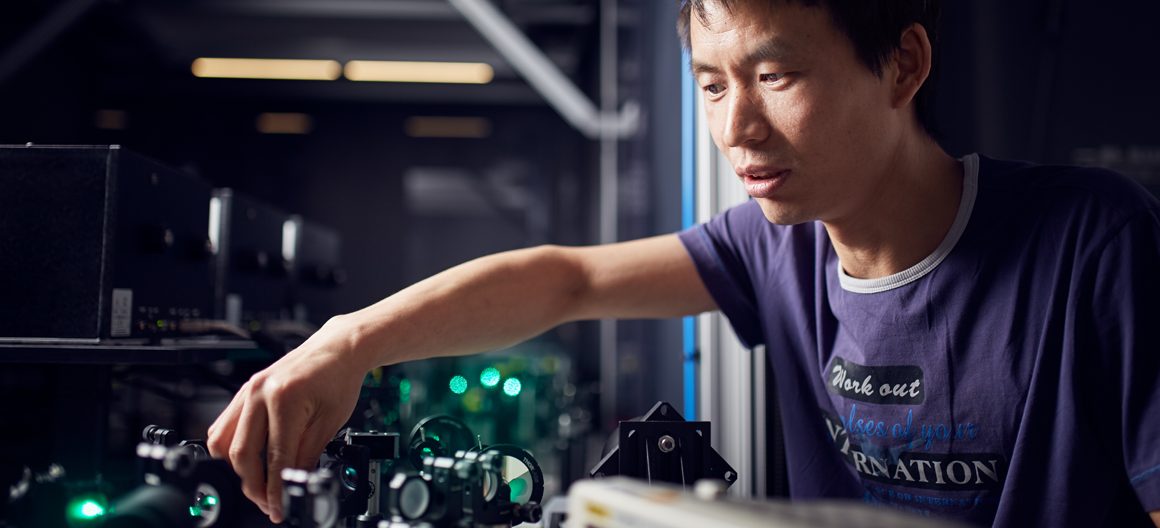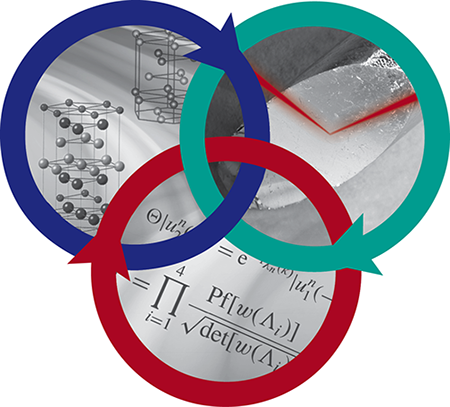CONTROL AND DYNAMICS OF QUANTUM MATERIALS
Spin-orbit Coupling, Correlations, and Topology Our PhDs about their researchSimon Wegener
News & Events
NEWS
Ernst-Ising prize for Camiel van Efferen
The Ernst-Ising Preis 2024 is awarded to Camiel van Efferen for his dissertation „Growth, phases and correlation effects of single-layer MoS2 and VS2“. In his research Camiel van Efferen created and investigated new structural and electronic phases of
single layer transition metal sulfides. Among the discoveries of Camiel van Efferen are charge density wave in vandium sulfides and the Kondo effect in twin boundaries of MoS2.
Furthermore, using contactless doping he induced a semiconductor-to-metal transition in MoS2 which led to the first observation of multipolarons in a 2D material.
We congratulate to the prize.
Gaede Prize 2025 for Wouter Jolie
Wouter Jolie receives the Gaede Prize of the German Physical Society „in recognition of his outstanding contributions to the study of correlation phenomena in low-dimensional quantum systems“. The prize honors especially this work on Tomonaga-Luttinger liquids and to the experimental validation of the Anderson model, explored in domain wall boundaries of transition metal dichalcogenides. Congratulations, Wouter!
EVENTS

Simon Wegener
RESEARCH PROFILE
COLLABORATIVE RESEARCH CENTER 1238
Control and Dynamics of Quantum Materials
Spin orbit coupling, correlations, and topology

Discoveries in basic science have paved the way for the majority of present-day technologies. Quantum materials, operating under the principles of quantum mechanics, offer a fertile ground for exploring new and unexpected phenomena, often arising from relativistic spin-orbit coupling and strong interactions of electrons. It is the mission of this collaborative research center (CRC) to discover, understand, and control novel physical properties in quantum materials emerging from the interplay between topology, spin-orbit coupling, and correlations.
Four focus areas (FAs) define our multifaceted approach to research on quantum materials. A central element of our research agenda is the interplay of spin-orbit coupling and strong electron-electron interactions, leading to topological phases, emergent gauge fields, and fractionalization. This point of view is emphasized by the FA “Spin-orbit dominated matter”. The FA “Topology and hybrid devices” explores novel effects arising when different quantum and topological materials are combined together in a single device. In the FA “2D materials and functionalization”, we take advantage of the fact that two-dimensional quantum materials can be controlled much more precisely than their 3D counterparts. Finally, the FA “Driven and active matter” explores pump-probe and non-linear spectroscopy and presents a new vision on physics far from thermal equilibrium, introducing “active quantum matter”. Guided by the analogy to biological systems, we design non-equilibrium states where topological defects are forced to move by the collective dynamics of the driven system. The CRC capitalizes on the close links between the four FAs.
We have put together a diverse team of scientists from experimental and theoretical physics, as well as crystallography in Cologne, complemented by scientists from the Universities of Bonn and Bochum, and the Forschungszentrum Jülich. Our agenda is complemented by programs to support and promote early-career scientists, by a vigorous gender and family support program, a data management plan, as well as a broad set of outreach and career development measures.
Participating institutes
funded by:


